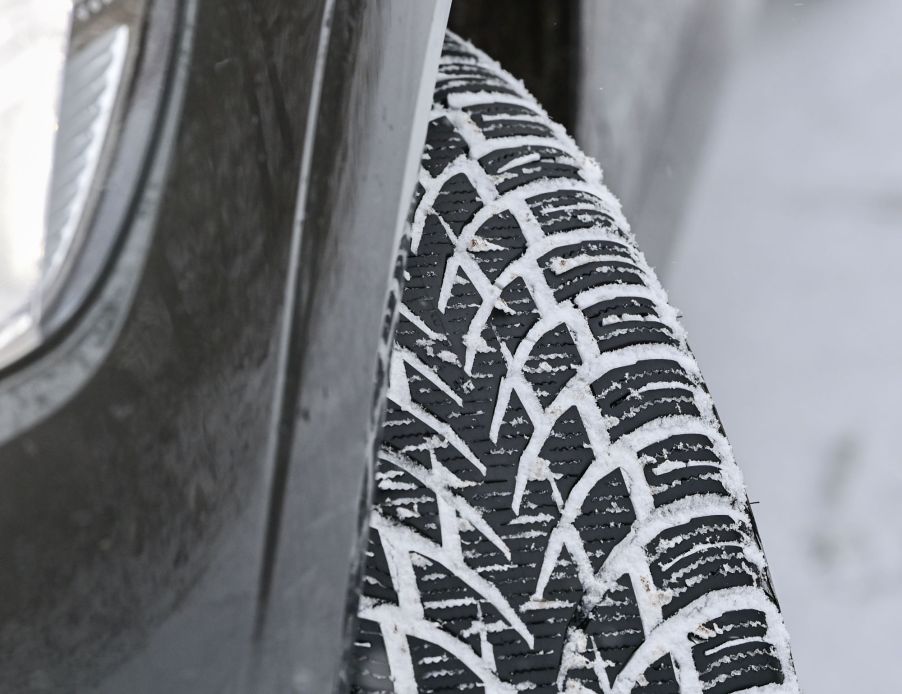
Do Winter Tires Use More Gas?
Fuel economy is always a concern for drivers, but it’s imperative during the winter months. Your car’s engine has to spend more time heating up, meaning your mileage will suffer while you wait. Tire pressure can also go down with the temperatures, requiring air more often than usual.
Your tires keep your car planted on the road. Proper maintenance during snowy and icy conditions is essential. Winter tires might be an extra expense, but they’ll add another element of security to your car. According to Motor and Wheels, these tires can increase your gas mileage.
Why winter tires save gas

Winter tires use less energy than all-season tires because they’re made of hydrophilic rubber. It’s designed to stay softer in frigid temperatures, using less fuel as they glide over snow-laden roads. These tires also have unique grooves that give them a better grip on wet roads.
However, not all winter tires are created equal. High-performance winter tires can potentially be driven all year, but they can’t grip the snow as well as studded winter tires.
Can you drive on winter tires all year?
Most winter tires will quickly become less efficient as the weather heats up past 44 °F. Winter tires can’t grip the road effectively on dry roads, so you need more effort to stop the car. Not only does this decrease your mileage over time, but it hinders your response time in case of a potential accident.
Winter tires with studs can grip the road too hard, which also uses too much energy. High-performance winter tires get slightly better gas mileage, but it’s nothing compared to summer or all-season tires. To get the best gas mileage and prolong the life of your winter tires, always switch them out after cold seasons.
Other ways to increase gas mileage in the winter
According to Greenability Magazine, you should also reduce how many trips you take during the winter. A cold or lukewarm engine won’t work as efficiently as designed, and warming it up beforehand wastes more gas. Leaving your car idling for minutes at a time also strains your car’s battery and increases its emissions output.
You can also keep your car as warm as possible by parking it in the garage. Consider using a tarp or blanket to cover the windshield if you don’t have one.
If it’s been snowing a lot, it’s good to brush off your car and de-ice the windows each day. All that snow can pile up when you don’t go out for a few days. It will take even longer for your engine to warm up with several layers of white fluff and ice.
We know it’s tempting to turn on the heated seats in winter, but keep that usage to a minimum. Seat warmers, defrosters, and your heating fans all use electricity, contributing to fuel economy loss.
Even winter tires can lose pressure in extreme cold, so always keep them properly inflated. Exterior accessories can cause you to get worse gas mileage because they create more wind resistance.
Owners of electric vehicles have to take additional precautions because EVs don’t have gas-combustion engines. Electric batteries take longer to reach optimal temperatures in cold weather, resulting in range losses as high as 30%. To combat this, heat your car while it’s still connected to the charger.
You should always refer to your owner’s manual for additional maintenance tips no matter what kind of vehicle you have. Some manufacturers advise using a different type of oil or coolant during winter. Winter tires are recommended for all cars up north, so you really can’t go wrong with that purchase.


